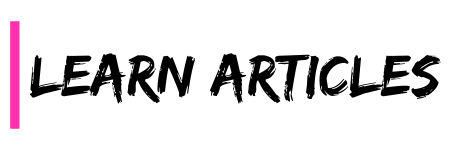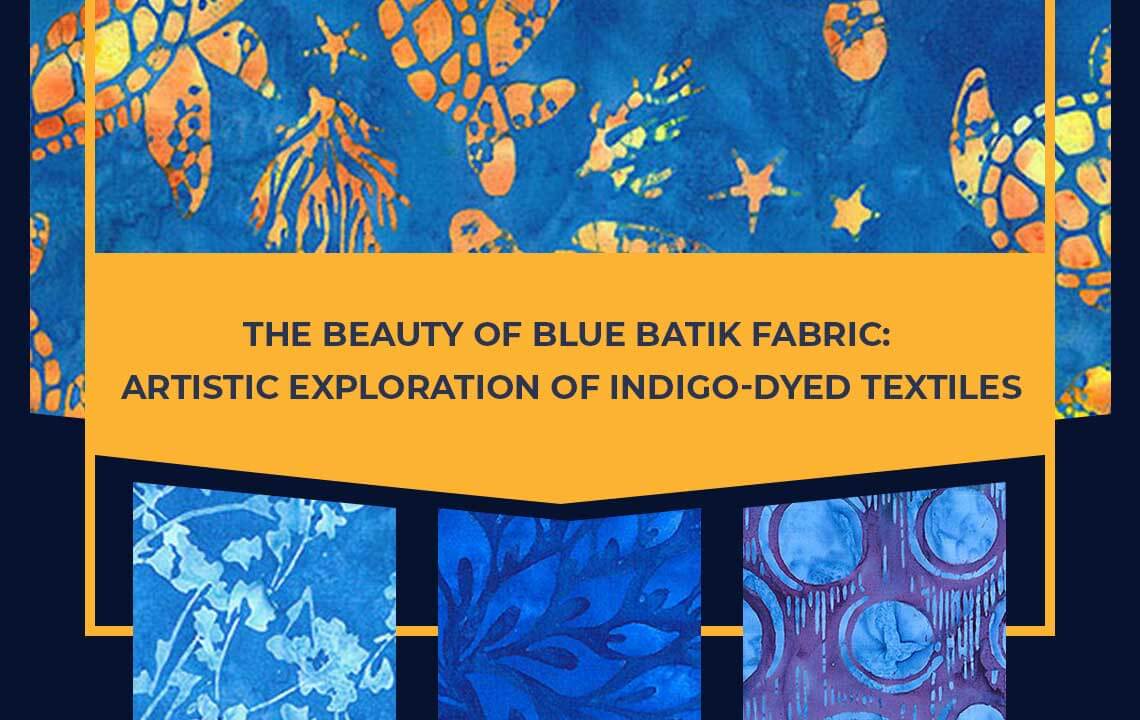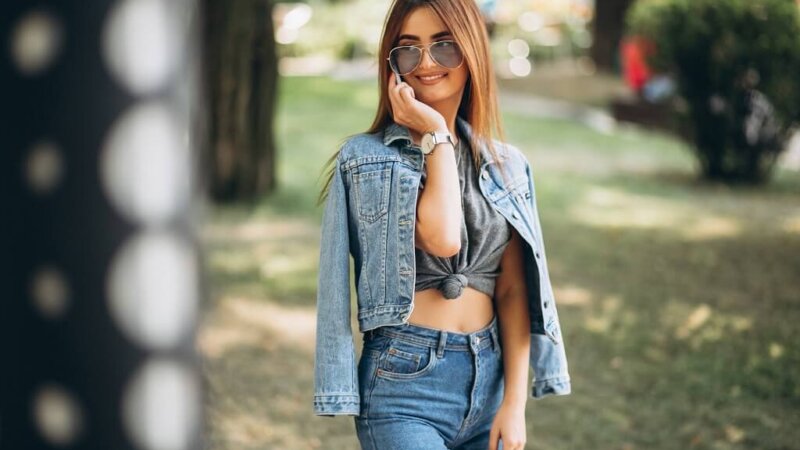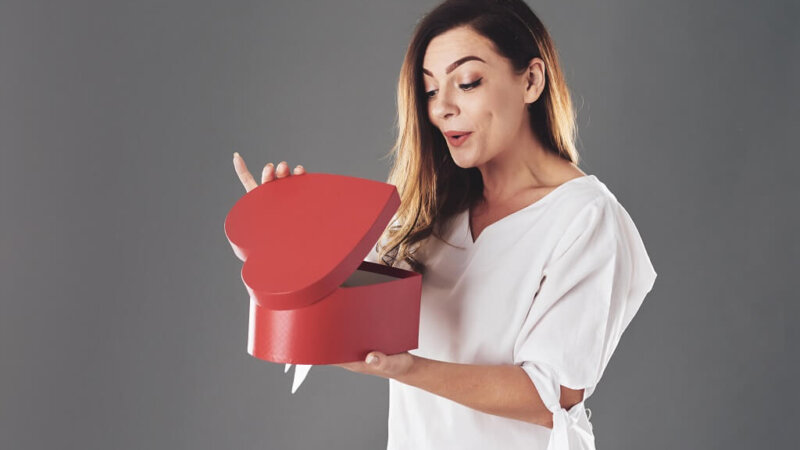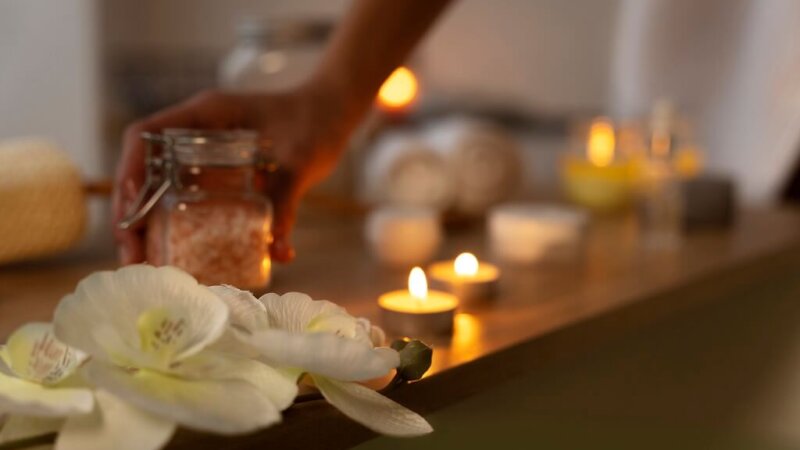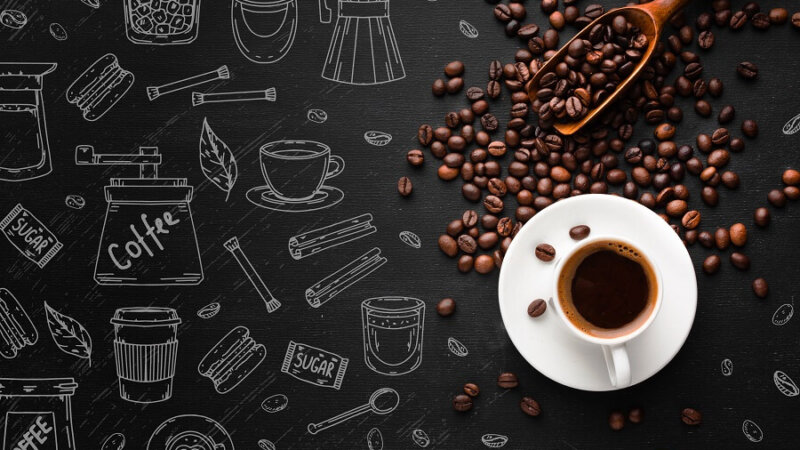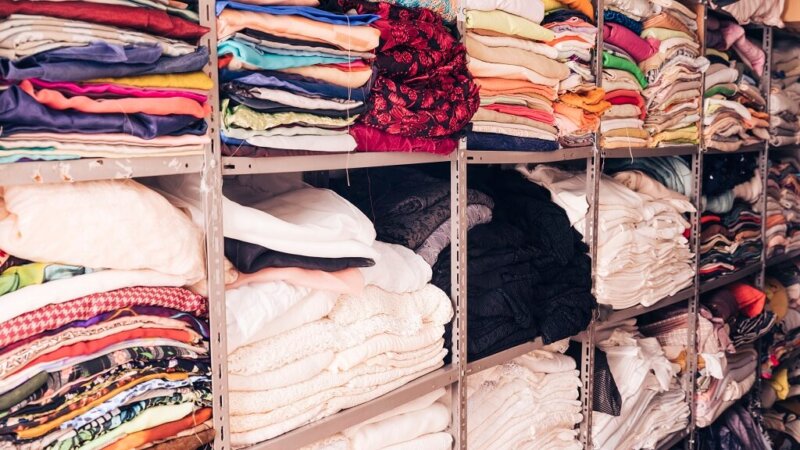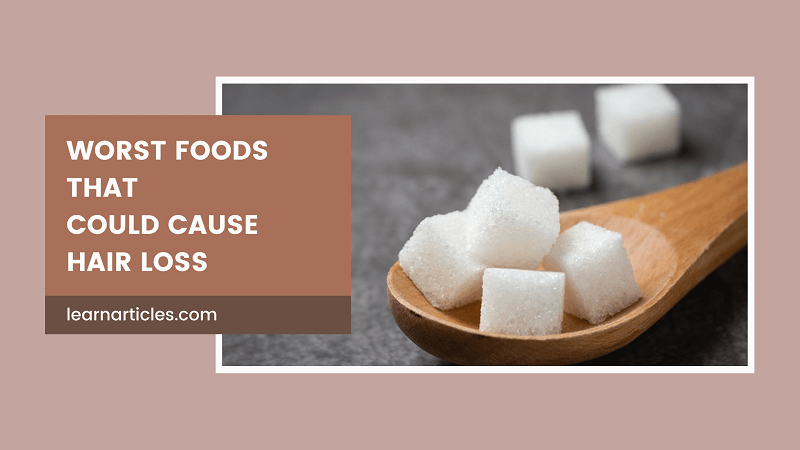The Beauty of Blue Batik Fabric: Artistic Exploration of Indigo-Dyed Textiles
Batiks originated in Indonesia. It is a traditional textile art that has since spread throughout Southeast Asia and Africa. Indigo blue is one of the most well-known and recognized hues used in batik. The indigo plant, which is indigenous to the tropical regions of South America, Africa, and Asia, is used to dye fabric to make blue batik.
Blue batik fabric, the indigo blue color has a rich history in batik, dating back centuries to the ancient kingdoms of Sumatra and Java.
The use of indigo dye was also passed down through the generations, with each family having their secret recipe for the dye.
Indigo blue batik s popularity is owned thanks to the fact that the indigo plant is widely available in the tropical regions of the world where it is made, making it a sustainable option for dyeing fabrics.
In addition to being frequently connected to the sky and the water, the color indigo represents calmness and peace. It is frequently used in batik to create a wide range of patterns, including floral and geometric themes. The classic Javanese motifs of parang (a stylized flower), kepala (a stylized bird), and kawung are some of the most well-known designs in indigo blue batik.
Batik fabric blue is not only beautiful to look at but also has a rich cultural history. It is a traditional art form that has been handed down through the ages and is still a well-liked artistic medium today. The indigo plant, which is a sustainable choice for dyeing clothes, is abundantly available in the tropical regions of the world where it is produced, which contributes to its appeal.
The preparation of the fabric is the first step in the process of making indigo-dyed batik. To ensure that the dye will be absorbed uniformly, the fabric is first cleaned and starched.
The chosen pattern is then inked or penciled onto the fabric. The fabric is dipped into a vat of hot wax after the pattern has been drawn, protecting the sections of the fabric that won’t be colored.
After being dipped into the indigo dye, the fabric is allowed to soak for a while. The fabric is then taken out of the dye and heated with a hot iron to melt the wax. Up till the appropriate level of blue is reached, this procedure is repeated.
Now let’s glance at some of the Batiks – Blues & Indigo
Sea Turtles & Sea Stars Batik – Cobalt Blue
This blue batik comes in Emerald, Brick Red, Sapphire, Cobalt Blue, Tangerine, and Marigold.
As they move across their ocean habitat, sea turtles swim amid bits of coral and sea stars. The larger turtles are roughly 3″.
Abstract Branches – Ocean Blue
Water & Powder Blue, Stratosphere Blue, Ocean Blue
Delicate and small-scale, these branches hold small leaves or blossoms and make for a great tonal blender. Batik, larger flowers are about 5/8″.
Artisan Batiks – Bubble Blues Orbs Batik – Powder Blue
Midnight blue, French blue, thistle, grape, steel blue, and indigo
This abstract batik fabric features various orb forms that give it a sense of motion and gravity. Batik, from the “Artisan Batiks: Bubble Blues” have larger circles measuring about 2-1/4″.
Artisan Batiks: Floral Wave – Curling Vines – Cobalt
French Blue, Sapphire, and Cornflower Blue
This tonal floral batik features tiny six-petaled blooms that emerge from curving vines. Batik; bigger blooms are around 3/4″ in diameter; designed by Lunn Studios for Artisan Batiks by Robert Kaufman Fabrics.
Artisan Batiks: Hidden Valley – Bluebells – Stratosphere Blue
French Blue, Sapphire, and Cornflower Blue
Batik; bigger blooms are around 3/4″ in diameter. This tonal floral batik features tiny 6-petaled blooms that emerge from curving vines.
Artisan Batiks: Seaside – Long Fronds – Bahama Blue
Blues Bahama, Azure, Turquoise, Ocean & Dawn Blue, Chartreuse
In this batik full of motion and flora, long frond leaves wave and wind in the breeze. Batik, from the “Artisan Batiks,” the bigger leaves are around 3″.
Artisan Batiks: Seaside – Swirling Waters – Cornflower Blue
Cornflower blue, royal blue, clematis, and eggplant
This fabric has a sense of motion and depth to it thanks to the blue swirls that undulate and produce little waves. Larger swirls in batik measure roughly 3″.
The blue batik fabrics mentioned above are some of the best available for quilting at the time.
You can check out the best ones for yourself and the available color options at eQuilter.
In conclusion, indigo blue has played a crucial role in the traditional art form of batik, which has been handed down through the generations. It takes a lot of talent and attention to detail to make indigo-dyed batik, which is a labor-intensive and time-consuming procedure. The final cloth has a deep cultural past in addition to being stunning. Even today, indigo blue batik is still widely used and remains a viable cultural medium for artistic expression.
So if you’re searching for the best Blue Batik Fabric, there’s no need to look further. Browse our collection and get the best that suits your brand. Happy Quilting!!
